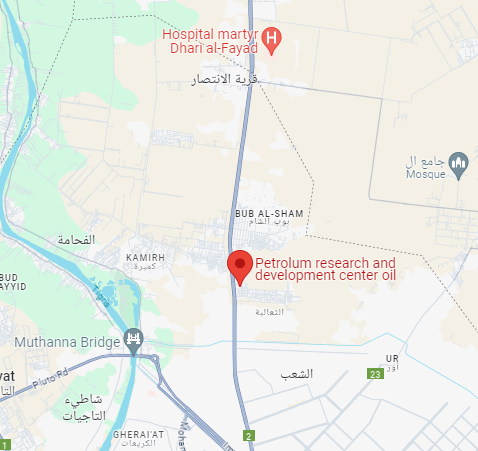Using Fuzzy Inference System in Gas Turbine to Overcome a High Exhaust Temperature Problem
DOI:
https://doi.org/10.52716/jprs.v12i1(Suppl.).634Keywords:
Fuzzy Inference System, Gas Turbine, Programmable Logic ControllerAbstract
The turbine units are at the forefront of equipment in the process of pumping crude oil and exporting it to the oil ports, where there are many types of turbines used in different sites of Iraqi stations whether pumping oil stations or electrical power production stations. One of the most important types of turbines is the gas turbine, which is frequently used in oil depots. One of the remarkable depots in Iraq is Zubair-1 / Basra that exports around 850,000 barrels per day (B/D). Therefore, Zubair-1 should continue pumping the crude oil 24/7, which has five gas turbines (three Rolls-Royce AVON MK 1533 and two Siemens SGT 400). However, the three Rolls-Royce gas turbines in Zubair-1 have not worked in the summer season since 2016, when the ambient temperature goes high around 11:00 am to 3:30 pm. This paper proposes solution to solve a high exhaust temperature (EGT) shutdown signal (a preventing running turbine signal) without effect on the sequence of turbine running stages. The proposal is adding a fuzzy inference system (FIS) that controls the gas turbine in the first two running stages that demonstrates and controls of speed the turbine from 800 RPM to 3000 RPM. The inputs of FIS are the average temperature of eight combustion chambers (exhaust temperatures) and the speed of the gas turbine, while the output of FIS is the control signal to the flow control valve (FCV) with an amplifier to gain the signal.
The FIS proposal has been applied in all three Rolls-Royce jet pumping turbines since April 7, 2021, and they work regularly at all times of the day. The FIS minimizes the maximum average of combustion chambers temperature at midafternoon in June 9, 2021 (48 ˚C ambience temperature) from 689 ˚C to 610 ˚C that means the improvement is around 45%.
References
Rolls-Royce Limited Maintenance Manual (Avon Mk1533(, 2005.
L. Alessandrini,, M. Basso, M. Galanti,, L. Giovanardi, G. Innocenti and L. Pretini, “Maximum Likelihood Virtual Sensor Based on Thermo-Mechanical Internal Model of a Gas Turbine,” IEEE Transactions on Control Systems Technology, no. 3, vol. 29. pp 1233-1245, 2021.
V. Prabakar, “Neural network based soft sensor for critical parameter estimation of gas turbine engine,” IEEE of Devices for Integrated Circuit, pp. 450-454, May, 19, 2021.
L. A. Bryan and E. A. Bryan "Programmable controllers: Theory & Implementation", Second Edition, Industrial Text Company, 2019.
A. V. Sotov, A. V. Agapovichev, and Yu M. Anurov. "Investigation of the IN-738 superalloy microstructure and mechanical properties for the manufacturing of gas turbine engine nozzle guide vane by selective laser melting," International Journal of Advanced Manufacturing Technology 107, 2020.
Jet Engine Design and Optimization.
URL: http: / /aerospaceengineeringblog.com/jet-engine-design/
S. Al-Dabooni, ”Fuzzy Logic Control Schemes for Motion Tracking and Navigation of an Autonomous Mobile Robot,” MASTER Thesis for Computer Engineering, University of Basra, 2009.
S. Al-Dabooni, and D. Wunsch II, “Mobile Robot Control Based on Hybrid Neuro-Fuzzy Value Gradient Reinforcement Learning,” IEEE, International Joint Conference on Neural Networks (IJCNN), pp. 2820–2827, 2017.
S. Al-Dabooni, and D. Wunsch II, “Convergence of Recurrent Neuro-Fuzzy Value-Gradient Learning with and without an Actor,” IEEE Transactions on Fuzzy Systems no. 4, vol. 28. pp 658 - 672, 2019.
E. H. K. Alkamil, S. Al-Dabooni, A. K. Abbas, R. Floria, D. C. Wunsch II, “Learning from Experience: An Automatic pH Neutralization System Using Hybrid Fuzzy System and Neural Network,” Complex Adaptive Systems Conference with Theme: Cyber Physical Systems and Deep Learning, Chicago, USA, 2018.
H., Petr, "Monotone Mamdani-type fuzzy systems with ellipsoidal antecedents," IEEE 16th International Conference on Control & Automation (ICCA), pp. 1636-1641, Hokkaido, Japan, 2020.
L. A. Bryan and E. A. Bryan, Programmable controllers: Theory & Implementation: Industrial Text Company, Second Edition, 2019.
S. Al-Dabooni, H. A. Alshehab “Self-Learning Controllers in the Oil and Gas Industry,” Journal of Petroleum Research and Studies, no. 30, vol. 3, pp 18-35, May, 2021.
Downloads
Published
How to Cite
Issue
Section
License
Copyright (c) 2022 Seaar J. Al-Dabooni , Hussein A. Al-Shawi

This work is licensed under a Creative Commons Attribution 4.0 International License.














